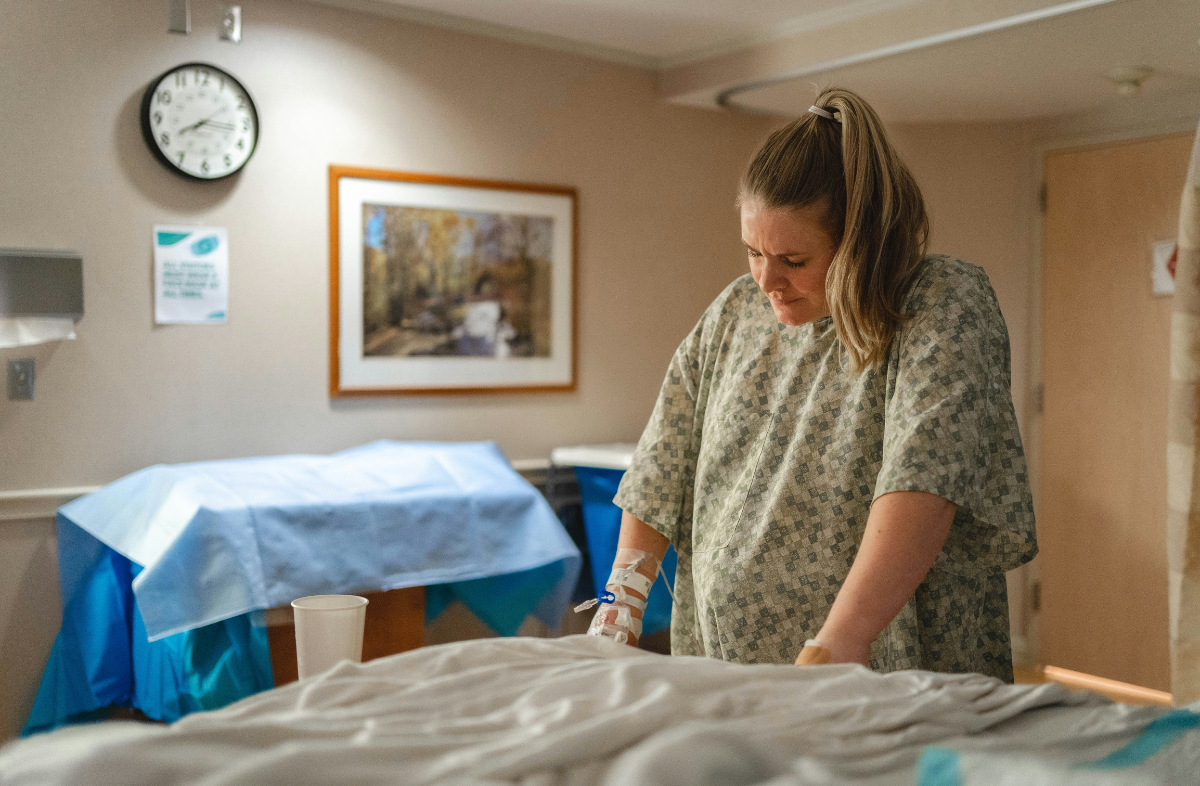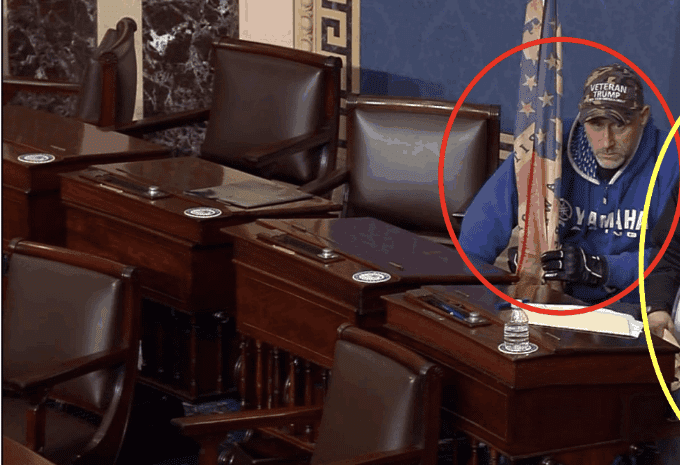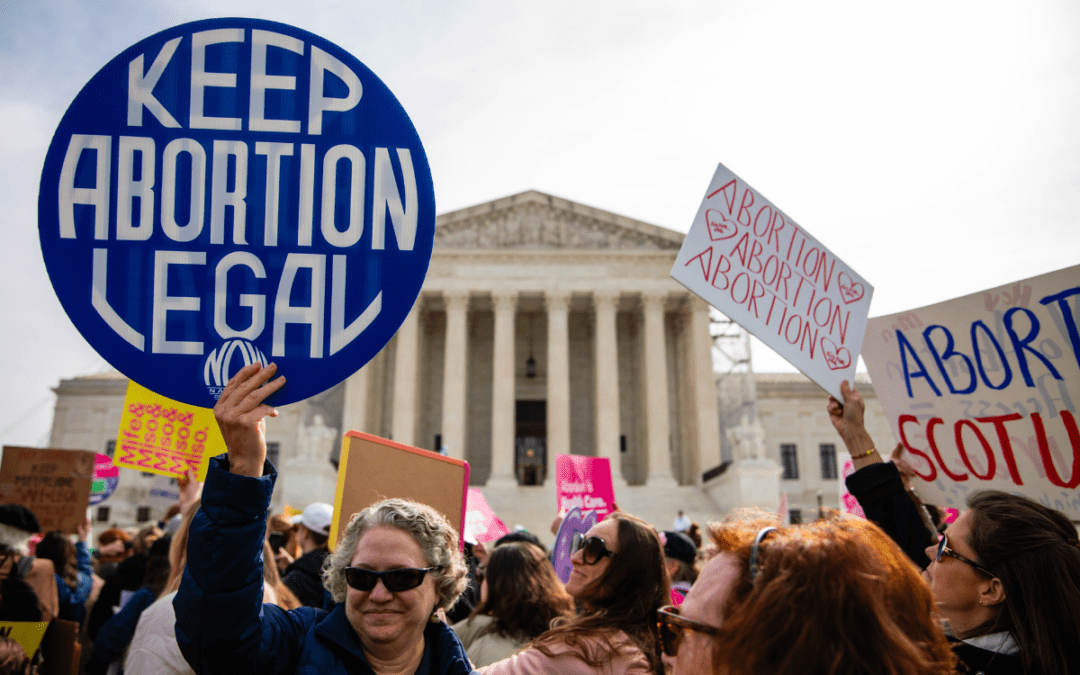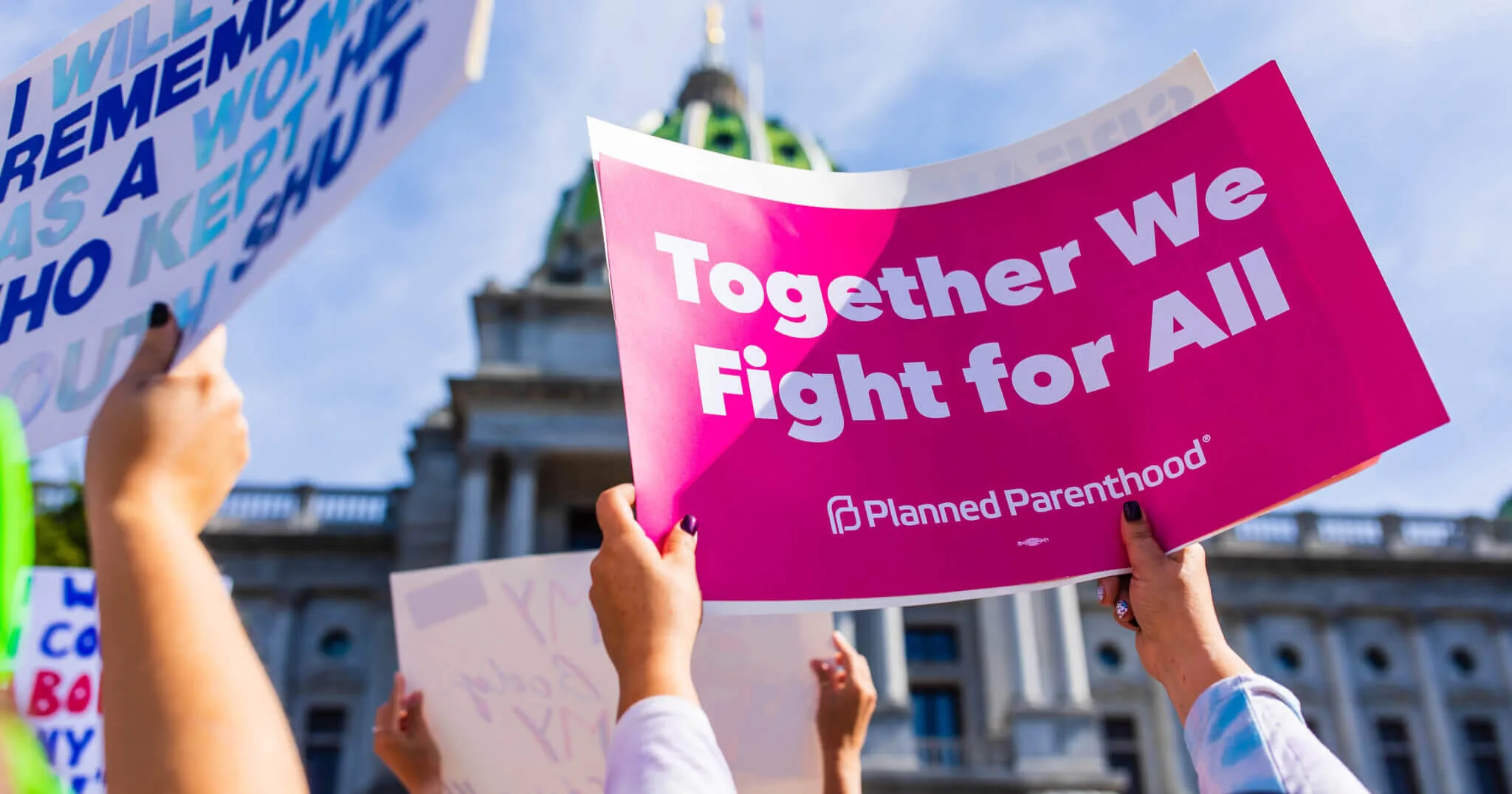
Photo by Jimmy Conover via Unsplash.
Originally published by The 19th
In what could be a groundbreaking shift in American workplaces, most employees across the country will now have access to unpaid time off to recover from childbirth or to access an abortion. These changes are part of new workplace protections made possible through the Pregnant Workers Fairness Act.
Discrimination against pregnant people in the workplace has run rampant for years, necessitating new legislation that would clamp down on employers who fire workers rather than accommodate their needs. After more than a decade of advocacy, the law passed in December 2022 and went into effect in the summer of 2023. But it wasn’t until today that the Equal Employment Opportunity Commission (EEOC), which enforces the law, released its final regulations that detail exactly how the law will work in practice.
As part of those regulations, the EEOC clarified the responsibilities employers with 15 or more employees will now have to their workers. These include key protections for a wide array of conditions related to pregnancy and childbirth.
According to the regulations, if a worker requests time off to recover from childbirth or to get an abortion, employers must work in good faith to accommodate those workers’ needs. At a minimum, that means unpaid time off, but employers can also offer paid time off if they wish to.
If an employer cannot accommodate a request for time off or another accommodation, they can deny the request — but only if they can prove that implementing the change would create “undue hardship” on the business. That threshold, attorneys who helped advocate for the law have said, could be difficult to prove because the accommodations are temporary.
The provisions relating to time off are especially important for workers who do not qualify for parental leave through the Family and Medical Leave Act (FMLA), which grants 12 weeks of unpaid time off but only applies to employers with 50 or more workers. About half of all Americans cannot access unpaid time off through FMLA, typically because they have not been in their job long enough or their employer is too small. Before the Pregnant Workers Fairness Act, one in four mothers returned to work within two weeks of giving birth.
The regulations don’t specify exactly how much unpaid time off workers can take to recover from childbirth, but the EEOC chair, Charlotte Burrows, said the commission gave some guidelines so that employers understand they have to communicate openly to provide accommodations that make sense. For example, workers may need time off for follow-up doctors’ appointments: Follow-ups for a vaginal delivery are usually about six weeks after birth, but recovery from a cesarean section typically takes longer.
Much of the final regulation worked to clarify what was covered under the law: What exactly did the law mean by “pregnancy, childbirth or related medical conditions”?
The EEOC clarified that these include a wide range of conditions that can be experienced during pregnancy, including morning sickness and gestational diabetes, plus the need for time off for doctors’ appointments or due to miscarriage. Post-birth conditions are also covered, such as time off to manage postpartum depression, for lactation and any related complications, such as conditions like mastitis, an infection of the breast tissue that typically occurs when breastfeeding.
Abortion, too, is part of that broad definition, the EEOC determined in its final rule. Employers are required to provide time off if a worker needs to travel out of state to obtain medical care for an abortion. Burrows told reporters Monday that the protected time off applies even if a worker is in a state where strict abortion limits are in place.
“This rulemaking does not require abortions or affect the availability of abortion; it simply ensures that employees who choose to have (or not to have) an abortion are able to continue participating in the workforce, by seeking reasonable accommodations from covered employers, as needed and absent undue hardship,” the regulation states.
To be clear, the rule does not mean that employers will be required to pay for the abortion or for the travel. There are also exceptions in the rule for religious employers, such as churches or religious private schools.
The rules were first expected to be published at the start of the year, but the EEOC had to sift through more than 100,000 comments it received on its proposed rules — more than 96,000 of them mentioned abortion — delaying the final rules by four months.
The regulations have roots back in 2011, when Dina Bakst, the cofounder and co-president of A Better Balance: The Work & Family Legal Center, first called for a new law that would protect pregnant workers. She had been inspired by the pregnant people who had contacted the organization with stories of how they lost their jobs or were retaliated against when they requested accommodations as simple as a chair or a bottle of water. Many of those workers were women of color, who are concentrated in the country’s lowest paid jobs where benefits are paltry and turnover is high.
In a statement Monday, Bakst said A Better Balance was “especially pleased to see leave for prenatal appointments and recovery from childbirth appropriately recognized as reasonable accommodations, benefiting millions of workers who currently lack any right to job-protected time off under the Family and Medical Leave Act (FMLA).”
Burrows said that part of the purpose of the regulations is to help employers understand exactly what their role is, and emphasize that they should work to communicate quickly and openly with employees to get them the accommodations they need “and to avoid unnecessary disputes or litigation.”
“The rule also will help avoid workers being forced into harrowing situations, jeopardizing their health, their pregnancies and their economic security,” Burrows said.
And those kinds of situations are still common. In March, for example, the EEOC settled a $205,000 lawsuit it had filed against Walgreens alleging that one of its stores denied a pregnant employee medical leave. The worker, who suffered from diabetes and hypoglycemia, started spotting while at work and requested emergency time off to get medical help, but was denied, according to the suit. She had no choice but to quit, and miscarried her pregnancy later that same day, the suit stated.
Implementing the law, especially one with broad new protections, is the challenge now ahead of advocates and the EEOC. In March, the Pregnant Workers Fairness Act was blocked in Texas for state employees after a judge ruled that the law could not be enforced there. (The law does apply to private and federal employees in Texas.) His reasoning was that the law was passed as part of a spending package that was voted on without a majority of members of Congress present.
EEOC Commissioner Kalpana Kotagal said the EEOC is complying with the Texas decision and the law isn’t being enforced for state employees there, but at this time the commission has “no reason to think” other states will follow suit.
Next, the EEOC will work to educate pregnant workers about their new rights. That could include working with obstetrics and gynecology doctors to ensure they understood the rules and could educate their patients about the new help available to them. Doctors may be trained on how to write notes for their patients should they need a workplace accommodation, Kotagal told The 19th.
Kotagal said the finalization of the Pregnant Workers Fairness Act is personal for her, as a mom who had complications during and after both of her pregnancies. She had access to support at work that protected her safety and allowed her to keep her job and advance in her career. There’s no reason she should be more privileged than other workers in receiving those accommodations, she said.
“I wasn’t choosing between my health — and the health of my pregnancy — and my paycheck,” she said. “This [law] just fundamentally values the work and lives of pregnant people and postpartum people in a way that they deserve. I have no doubt this will make substantial change in the lives of workers and families, but I also think it represents a real change and a step forward for the American economy.”
Workers who have questions about the law can read The 19th’s breakdown of how it works, or contact A Better Balance’s legal assistance line if they have additional questions at 1-833-633-3222. The Center for WorkLife Law, which also helped write the legislation, runs a free and confidential legal help line for those who have questions on the law. They can email [email protected] or call 415-703-8276 to leave a message. Services are in English and in Spanish with other languages available upon request.
Politics

Central Pa. man found guilty of assaulting officers during Jan. 6 attack
Joseph Pastucci of Cumberland County stormed the U.S. Capitol with his wife, who kicked a Capitol Police officer in the groin as they were trying to...

Republicans’ Latino outreach offices missing in 2024
Republicans once looked at organizing in Pennsylvania’s Black and Latino communities, but now their presence is non-existent. While the Biden...

Bob Casey warns about Supreme Court’s attacks on workers and unions
US Sen. Bob Casey is warning Pennsylvania voters that the US Supreme Court is coming for the right to organize. Corporate greed and workers’ rights...
Local News

What do you know about Wawa? 7 fun facts about Pennsylvania’s beloved convenience store
Wawa has 60 years of Pennsylvania roots, and today the commonwealth’s largest private company has more than 1,000 locations along the east coast....

Conjoined twins from Berks County die at age 62
Conjoined twins Lori and George Schappell, who pursued separate careers, interests and relationships during lives that defied medical expectations,...





